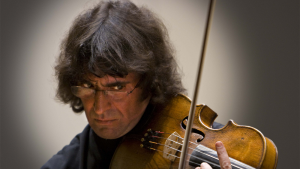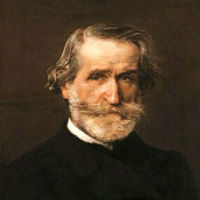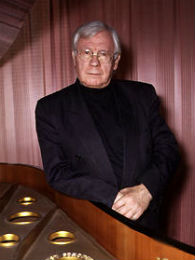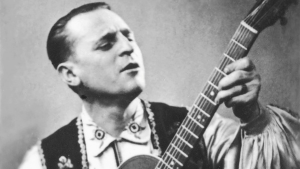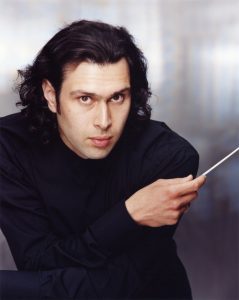JOHANN SEBASTIAN BACH – MUSIC SELECTOR
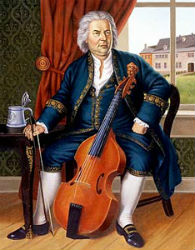 The Bach family name and the word “musician” were synonymous in Germany for several centuries, because this ancient genus gave the world 56 musicians, but only in the fifth generation was born the one who was destined to glorify the surname, Johann Sebastian Bach. His biographer later wrote that Johann’s work emitted such a bright light that his reflection hit all the representatives of the family name. This man became the pride of his fatherland, it seemed as if the art of music itself was his patron. However, during the life of the great composer, he could hardly be considered the chosen one of fate.
The Bach family name and the word “musician” were synonymous in Germany for several centuries, because this ancient genus gave the world 56 musicians, but only in the fifth generation was born the one who was destined to glorify the surname, Johann Sebastian Bach. His biographer later wrote that Johann’s work emitted such a bright light that his reflection hit all the representatives of the family name. This man became the pride of his fatherland, it seemed as if the art of music itself was his patron. However, during the life of the great composer, he could hardly be considered the chosen one of fate.
Under the influence of brother
At first glance, the life of Johann Sebastian Bach may seem nothing at all different from the biographies of other German musicians who lived in the XVII-XVIII centuries. He was born on March 31, 1685 in the small town of Eisenach in Thuringia. Bach early orphaned – he was only 9 years old when his mother was gone, and a year later, and his father. His elder brother Johann Christoph, who was an organist in a nearby town, took him to his upbringing. First, Johann Sebastian, composer Johann Sebastian Bach studied music under the guidance of his brother and school cantors, he later moved to the Lower Saxon city of Lüneburg, where he attended a school at the church. He mastered the technique of playing the harpsichord, violin, viola, organ, besides this, Johann Sebastian was a chorister in the choir, and later became an assistant to the cantor after his voice mutation.
Already in his youth, Bach was clearly aware of his vocation in organ music. He constantly studied the art of improvisation on the organ from the best German masters of the time. Subsequently, these skills will become the basis of his skill. It is worth adding to this and Johann Sebastian’s acquaintance with various genres of European music. He participated in concerts of the court chapel of Celle, which was distinguished by its love for French music, visited Lübeck and Hamburg, and had the opportunity to study the works of Italian masters in the school library.
Young perfectionist
Johann Sebastian after school was quite an educated and experienced musician, but the craving for learning did not leave him throughout his life. He was interested in everything that could at least a little broaden his professional outlook. Bach’s career was distinguished by perfectionism and the eternal striving for self-improvement. He did not by chance take one position or another, every step of his musical hierarchy (from organist to cantor) Johann Sebastian Bach with cello Johann Sebastian Bach earned with perseverance and work. And with each step, the practitioner turned into a composer, whose creative motives and accomplishments went far beyond the goals that Bakh had set for him.
In 1703, he became court musician for the Duke Johann Ernst in Weimar. A few months later they started talking about him as a prominent performer. Then Bach was invited to Arnstadt to take the post of church organ overseer. In St. Boniface’s Church, Johann Sebastian worked with a well-tuned instrument that expanded his performing and compositional possibilities. In Arnstadt, he wrote a lot of organ works, but over time he had problems in communicating with local authorities. Bach was not satisfied with the level of training of choral singers, and local officials showed him dissatisfaction with the musical accompaniment of choral performance, which allegedly confused the parishioners.
Large family of Bach
In Arnstadt, Johann Sebastian fell in love with his cousin Maria. Despite the relationship, the beloveds decided to get married, but their Johann Sebastian Bach family family was short-lived. Maria lived only 36 years old, although she gave birth to 7 children. Only four of them survived. The second wife of Bach was Anna Magdalena, who was 16 years younger than him. But such a difference in age did not prevent Anna from becoming a caring mother for her spouse’s already grown children. She gave Johann Sebastian another 13 heirs, coped well with housekeeping and was genuinely interested in her husband’s achievements in the music field.
Looking for prospects
When Bach was offered in 1706 to become an organist in Mühlhausen, he no doubt changed his place of work. The position was profitable and provided Johann Sebastian clearly greater opportunities than in Arnstadt, but it was not enough to contribute to the development of church music, as Bach believed. By this time, he had already accumulated an extensive repertoire, and, not seeing Johann Sebastian Bach being a compository for himself, he wrote a letter of resignation to the city magistrate.
Johann Sebastien Bach waited for his diverse activities in the castle church and chapel at the court of Duke Ernst of Saxe-Weimar. In Weimar, the composer managed to finish several of his significant works – Toccata and fugu in D minor, Passacaglia in C minor, as well as the famous “Organ Book” – a guide for novice organists. Bach became famous far beyond the city, as a connoisseur of improvisation and the best adviser in terms of organ construction.
